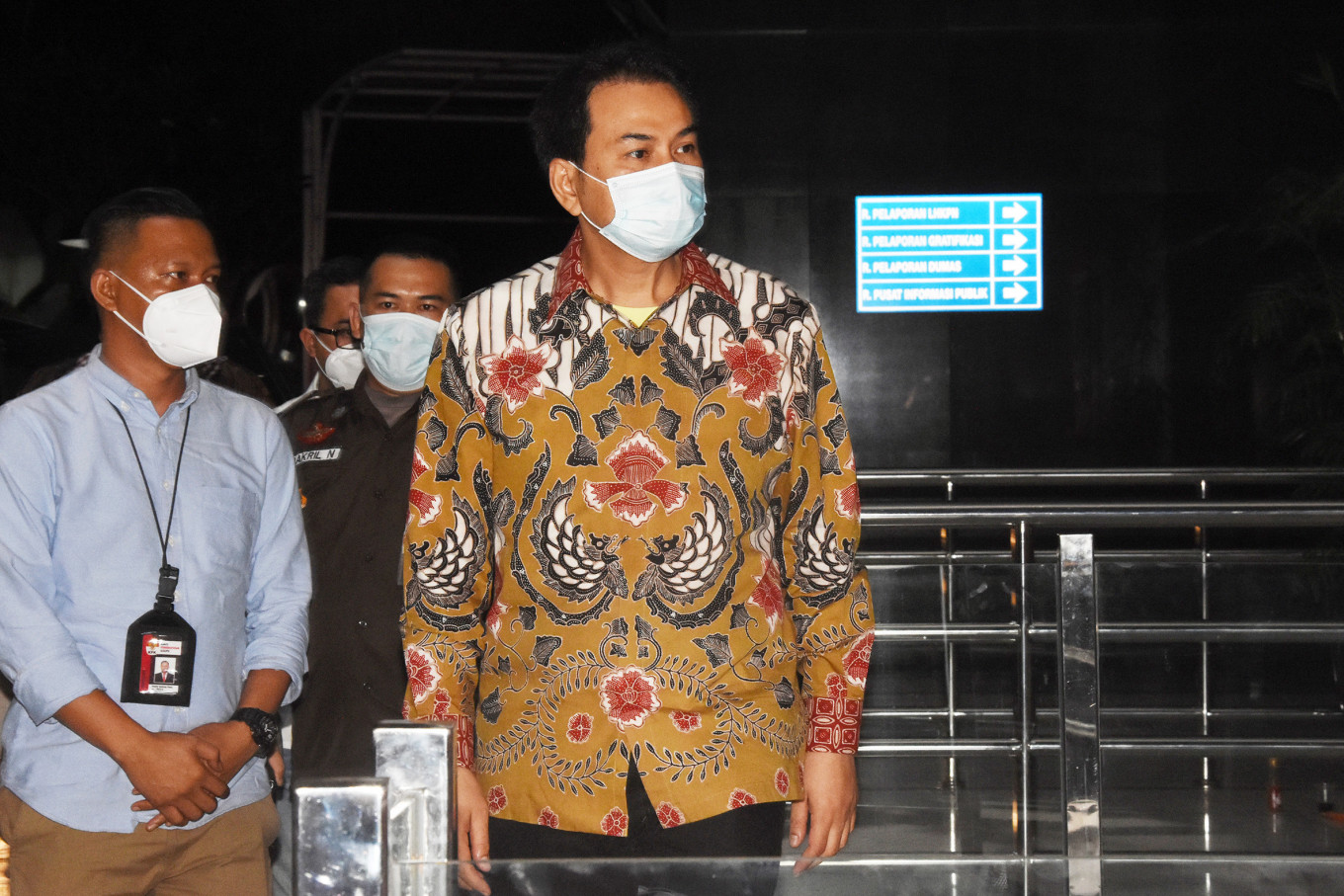Popular Reads
Top Results
Can't find what you're looking for?
View all search resultsPopular Reads
Top Results
Can't find what you're looking for?
View all search resultsAntigraft drive in doubt
Given that he was a high-ranking public official and lawmaker who should have set a good example on compliance with the law, Aziz deserved a much heavier punishment.
Change text size
Gift Premium Articles
to Anyone
T
he frequently raised doubts about the country’s fight against corruption were reinforced again after the Jakarta Corruption Court recently handed down a light sentence to former deputy House of Representatives speaker Azis Syamsuddin.
There was simply no sense of justice in the Jakarta Corruption Court’s decision last week to sentence the Golkar politician Aziz to three and a half years in prison for bribing a lawyer and a then-investigator from the Corruption Eradication Commission (KPK) in 2020-2021 to evade an investigation into a graft case in Central Lampung. Given that he was a high-ranking public official and lawmaker who should have set a good example on compliance with the law, Aziz deserved a much heavier punishment.
The lenient sentence will do little to control the damage he has done to the reputation of the legislature through his bribery. Worse, the short prison term is unlikely to deter other people from engaging in corruption, hence undermining the national drive against graft.
The judges, however, should not solely take the blame. KPK prosecutors, too, played a role in this mockery of justice. Instead of demanding a maximum sentence of five years’ imprisonment in accordance with the Corruption Law, they only asked for four years and two months in prison for Aziz.
The KPK has hinted at appealing the Court’s decision, but its failure to get tough with well-connected corrupt political figures has sent the message that crime may well pay, especially for those who have access to power.
We have been watching the worrying trend of judges handing down light sentences to graft convicts in the last few years. Indonesia Corruption Watch, for example, previously released statistics showing prison terms for graft convicts averaged two years and seven months in 2019, and two years and five months in 2018.
Aziz is unlikely to file an appeal, as he knows very well the generosity of the country’s justice system. He can expect big remissions on Idul Fitri and on Independence Day so that he can breathe the air of freedom in, let us say, two years. More importantly, the jail term Aziz is serving is a good excuse for law enforcers to turn a blind eye to other cases implicating him.
Many people may have discovered even more reasons to be skeptical about the anticorruption drive when the Cirebon Police in West Java named a treasurer of a village a suspect after she filed a report against her village head for allegedly misappropriating the village budget.
The Cirebon Police may have an excuse for naming Citemu village treasurer Nurhayati a suspect earlier this week, but the move will only discourage whistleblowers from reporting irregularities to law enforcers. The graft case, which is believed to have inflicted Rp 818 million (US$56,934) in losses to the state, would not have come to the fore had Nurhayati not had the courage to tell the police in the first place.
It is good to hear the Witness and Victim Protection Agency (LPSK) will soon intervene. A number of whistleblowers have stood trial for defamation in the past as corrupt suspects retaliated against their exposers, and Nurhayati should have not joined the list of criminalization victims.











